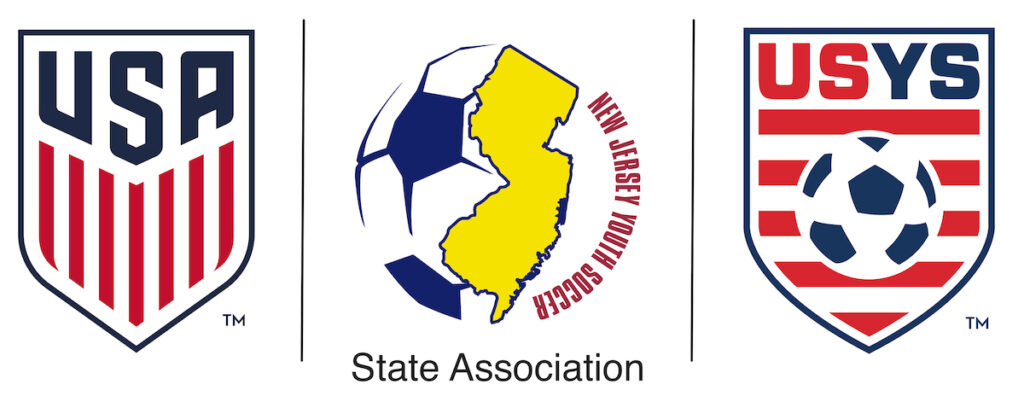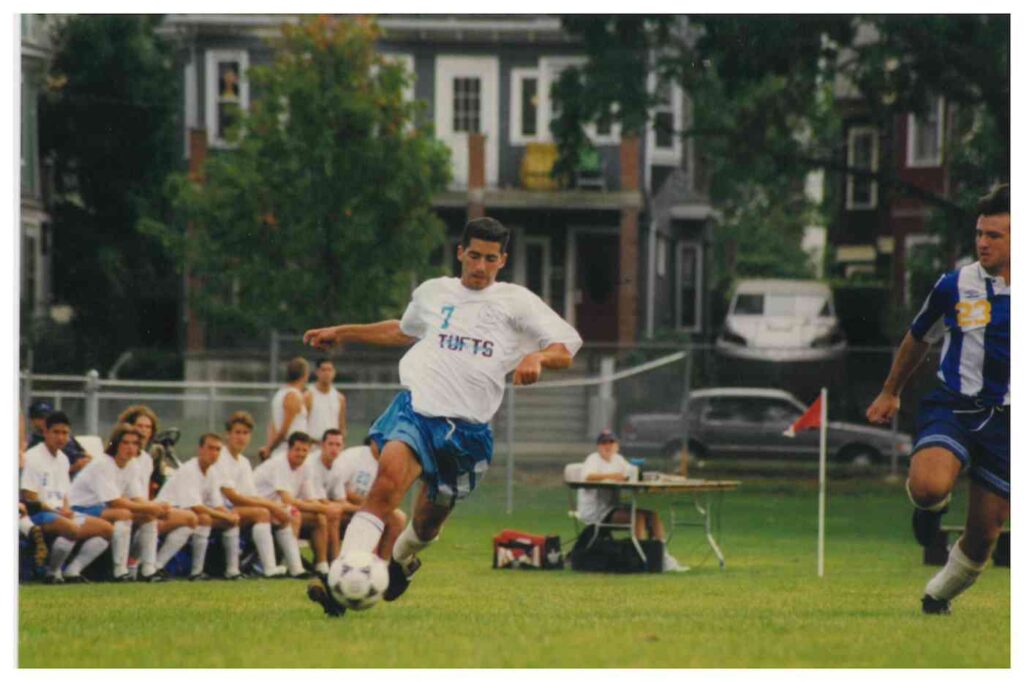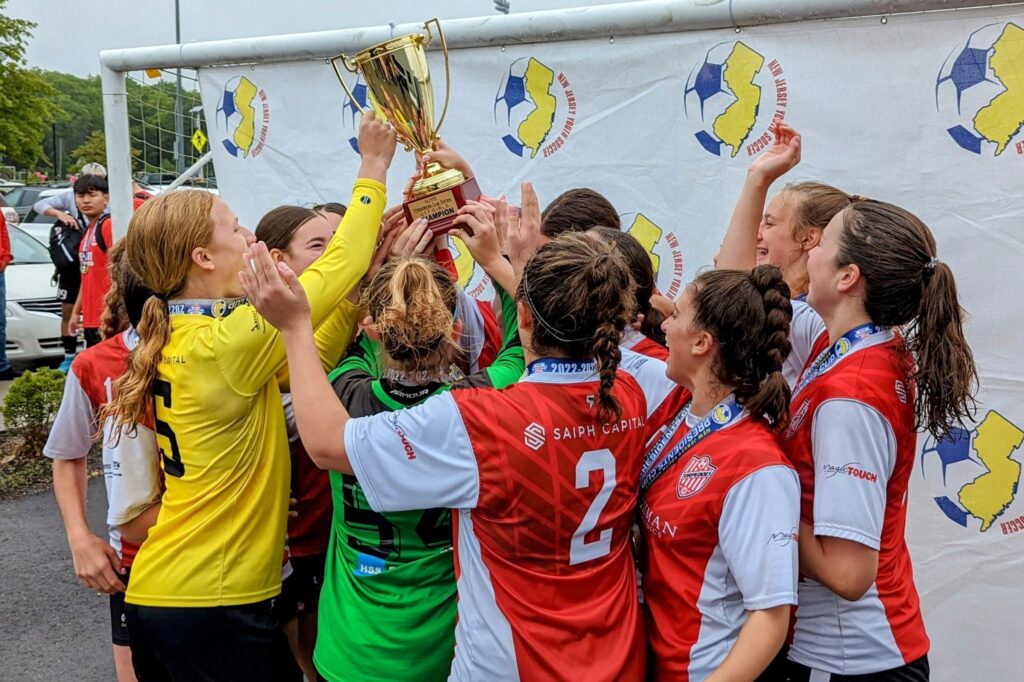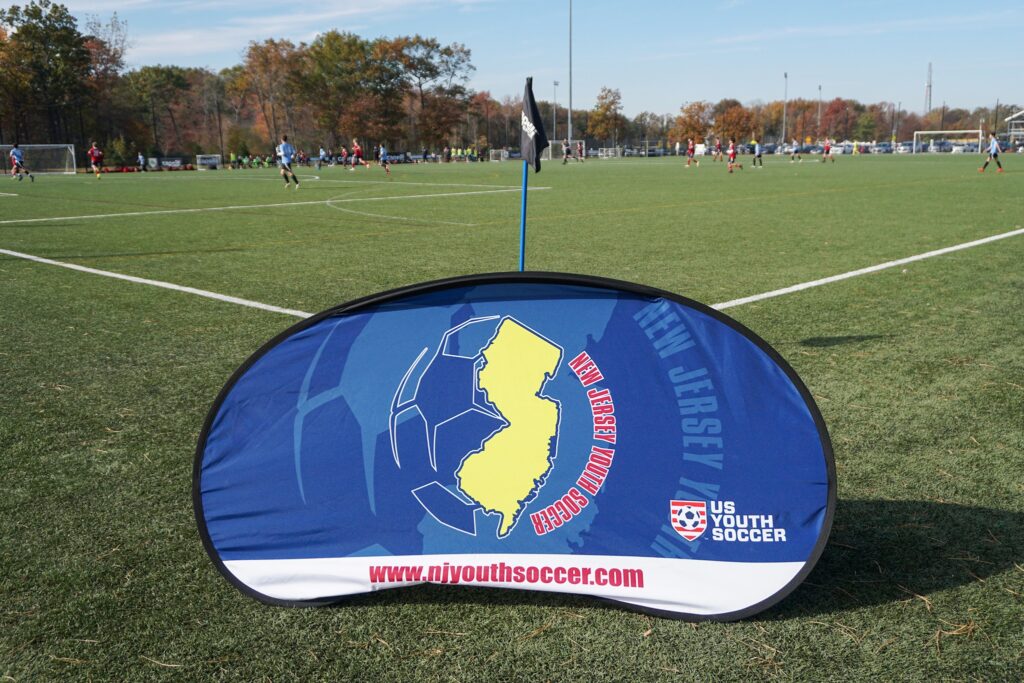What Makes a Great Leader? Meaningful change is not easy, nor is driving innovation and impact .…
SoccerToday’s Editor-in-Chief Diane Scavuzzo Chats with New Jersey Youth Soccer‘s Evan Dabby on Combining Collaboration and Traditional Wisdom For the Good of the Game. Republished from June 2023.
To fight against organizational inertia arising from decades of discourse takes more than commitment — it takes bravery.
The challenges inherent in blending the opinions of multiple stakeholders into a concise, clear path require more than leadership — success requires building a consensus. Few leaders in American soccer can bend their perspective for the good of the game. Evan Dabby has the quiet determination to achieve progress and the inclusiveness in his DNA required to create unison.
Success often comes down to listening.
Evan Dabby

Who is Evan Dabby? Dabby joined NJ Youth Soccer (NJYS) as the Executive Director nine years ago after working for the MLS in the League’s office for 16 seasons. His last position was Director of Operations. Dabby also played soccer in college at Tufts and understands the game from many levels.
As the person responsible for growing youth soccer in New Jersey state — one of US Youth Soccer‘s largest state associations — Dabby has been immensely successful with growth figures that would please a Fortune 500 CEO.
- Without raising recreational or competitive travel player fees in recent years, NJYS has grown from 99K players in in 2017/18 season to nearly 110K in 2021/22
- State Cup participation has increased 100% from 520 teams in 2018 to 1050 teams in 2022
- TOPSoccer participation has increased 100% since 2019
- ODP tryout participation has doubled since 2014
- Sponsorship partners have increased by 700% since 2014
- Social Media Success: NJYS Facebook page LIKES have doubled since 2018
What does he attribute his state’s success to? Besides thanking his talented staff for their hard work and dedication, as well as crediting the Board of Directors for its strategic focus, Dabby has done something unusual. Something I have not seen successfully done before on this scale. Dabby is curating the best practices in his association, and sharing the ideas across state lines, creating a virtual think tank brainstorming group.
Honestly, collaboration — and ignoring borders — has happened all too infrequently in youth soccer.
Evan Dabby, New Jersey
To create positive change, and drive innovation in our vast country, Dabby has had to think out of the box. A relentless consensus architect, Dabby is both a catalyst and a bridge builder and has inspired a culture of respect and pride in New Jersey.
While creating an exponentially growing New Jersey youth soccer community, Dabby has shared what ‘normally’ might be considered proprietary materials on internal successes with other US Youth Soccer states associations.
From a practical standpoint, Dabby recognizes the obvious: US Youth Soccer’s 50+ states associations are not usually in competition with each other. However, rarely has collaboration on a peer-to-peer level inspired sharing the bounty of tried and true on-the-ground results and materials. This is now happening.
Over the past several months, in collaboration with like-minded states who share a vision, New Jersey Youth Soccer has pioneered a new approach. Forgetting about organizational boundaries, working together with Gordon Henderson (OH), Alex Brame (NYW), Hans Hobson (TN), Kris Zander (KY), Laura Halfpenny (GA), Dave Guthrie (IN), and Dan Cataldi (IA), Dabby has pioneered a mindset of shared intel — and, everyone has benefited from the Executive Directors to the players on the fields.
This is the perfect structure — zero competition with huge benefits from learning from each other.
Evan Dabby, New Jersey Youth Soccer
One of the key drivers of success in today’s competitive landscape is the ability to get people to work together and co-create — in other words, not to lead people to accept change but to inspire democratized progress.

“Change is hard,” said Dabby who admits it is near impossible to get 50 state leaders to agree as responses can be so varied it is hard to make clear, unified progress. “In New Jersey, we use experts on advisory boards to help create actionable decisions.”
“In a meeting with 2 people, it is easier to navigate issues than it is in a conference with 100 stakeholders,” said Dabby.
This is the clear logic behind advisory boards — as well as the fact that utilizing stakeholders’ expertise can offer a wide range of benefits. In today’s competitive environment, why not take advantage of an abundance of experience from committed local experts? As for New Jersey Youth Soccer’s advisory boards, why not have the marketing expert on the communications advisory board and the lawyer on the legal advisory board?
READ: NEW JERSEY YOUTH SOCCER: EVAN DABBY
“For years, the US Youth Soccer landscape has operated more like a government than a business,” said Dabby. “Progress can happen more efficiently with a business-like approach, creating a consensus instead of trying to find a platform every stakeholder can join.” Managing 50+ diverse states’ goals and pain points will never be a celebrated responsibility and Dabby greatly respects the leadership of US Youth Soccer — he just believes it is also up to the individual states to do what they can to work better together.

When asked how bright is the future of US Youth Soccer, Dabby answers, “The potential is immense. The states are the boots on the ground and the connectivity to the local market with unparalleled influence on the communities when it is done right — and we all can do more to keep player retention higher and make our sport sticky.”
This is not a bold or futuristic approach.
What is emerging is a new ecosystem that can tackle the important issues that are facing youth soccer today in the US Youth Soccer’s universe of 3 million+ registered players. For instance, stopping youth soccer tryouts happening during the middle of the soccer season.
The issue of pushing competitive youth soccer tryouts to a later point in the season could be one of the most daunting challenges for many state associations. Competitive youth soccer clubs are in competition with each other for the best players and it is often viewed as a race to have players commit — which results in tryouts and teams being formed for the next season way before the current season is over.
Imagine the kid who doesn’t make the team for next season still playing on his squad, paying for youth soccer tournaments and travel but feeling like it is not really his team. How does this inspire a love of the game or the values of team building?

To focus on a real, long-term solution to the race of signing the best youth soccer players and the ever-forward creeping tryout dates takes patience and an unrelenting commitment to what is fair.
It is about finding the right balance.
Evan Dabby, New Jersey Youth Soccer
“The vast majority of youth soccer clubs would like to change the timing of tryouts, but no one is going to change until everyone changes,” said Dabby. “We are looking for solutions that people can tolerate. A tactical approach may be to tackle the tryout dates for the younger ages first before trying to create an agreement that can unify ECNL, MLS Next, US Youth Soccer, and US Club Soccer on the topic.”
To synthesize the legitimate concerns of the youth soccer clubs’ desire to build the strongest teams as well as balance the well-being of the players — and continue to grow the game — is no simple task. But it is a task Dabby has taken on —and this is good for the game.
Those empowered to organize youth soccer are responsible for growing the lifelong passion of our youth players. This hefty task comes with many challenges and change is always a multi-stage process — but if we want our favorite sport to become preeminent and build lifelong fans who buy tickets to games, we must make positive changes.
And, we will.
READ: PILOT AFTER SCHOOL STUDENT SOCCER PROGRAM LAUNCHED IN NJ and 2X FIFA WORLD CUP WINNER CARLI LLOYD PROUD TO WORK WITH NJ YOUTH SOCCER





